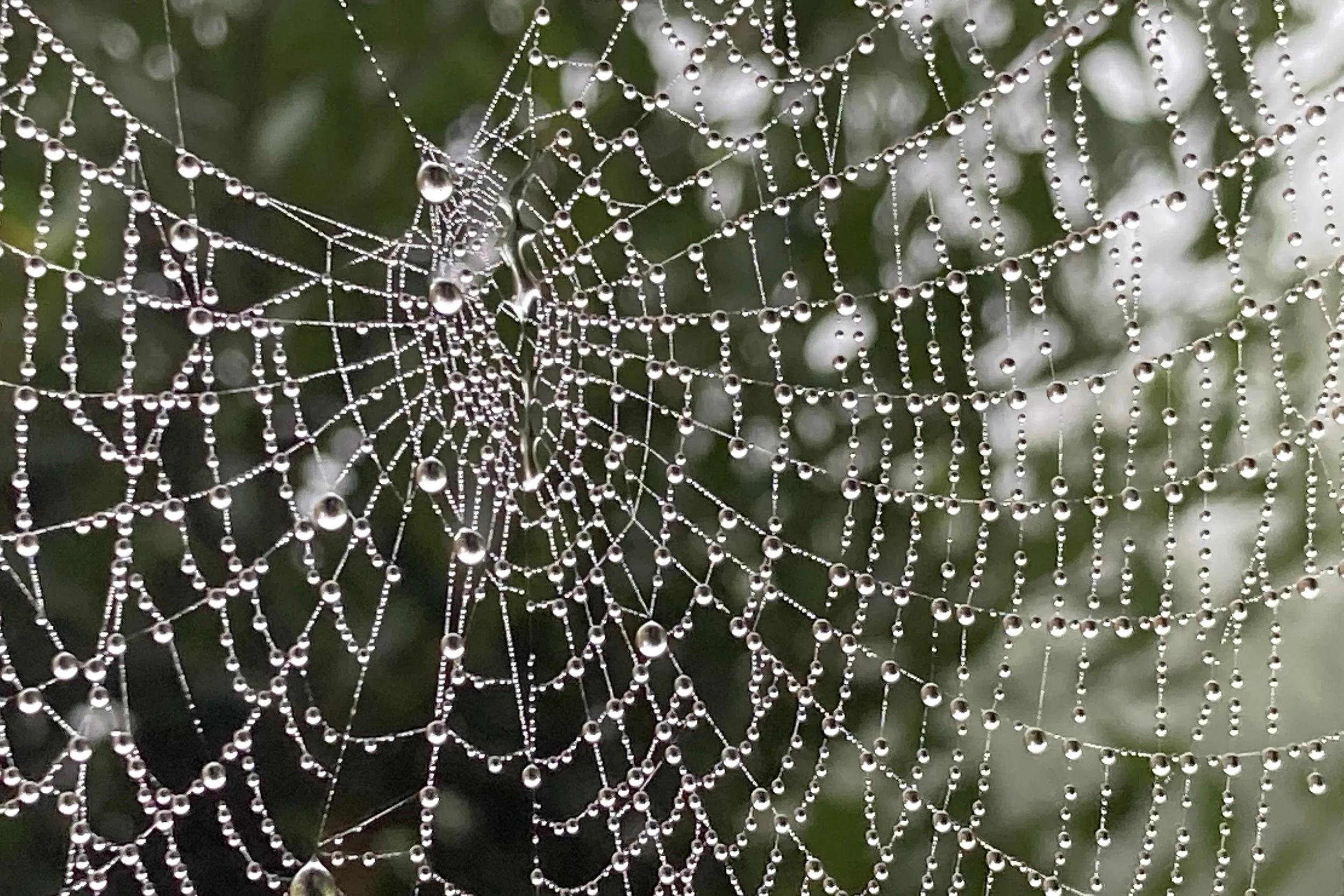How I Wrote ‘Every Spider is an Individual to Himself’
Opening up while closing down
The Tiers were ramping up, though none of us knew what they meant. Autumn was becoming winter in ways beyond the seasonal cooling and darkening. I’d been living in a tunnel of suspicion and increasing paranoia while finishing a novel about rebellion in tsarist Odesa. It seemed that nobody wanted the fruits of my labour and the disappointment left me genuinely bereft for a couple of days. But the ‘bereavement’ for the imagined future cleared a space, swept clear the stage for the pageant I’d constructed in my mind. I began to look at the world around me, at what was actually there in the clouds and decaying leaves.
The mist
One morning I woke to a mist that picked out every spider web and stray spider web, just as in the story. I couldn’t tear myself away from the hedges and railings. The world really was full of spiders. I had no idea. ‘Every spider is an individual to itself,’ I thought as we walked along the road, minding the fresh deposits on the pavement. ‘I’ve never thought about that before.’ An otherwise ordinary walk to the local park as part of our reduced, and reducing, routine became utterly magical.
When we arrived home the Katherine Mansfield book I’d ordered was on the doorstep. I read no more than the first page of the first story, ‘Prelude’, and was so excited that I thought, ‘I have to write about the littlest things, I have to write about the spider webs.’
So into my notebook I poured out everything I’d felt on that magical walk. Then I wondered what kind of person would feel filled to the point of bursting in this way. A teenage boy popped into my mind. I thought, ‘This boy would be transfixed by these webs but other people would see this as symptomatic of his troubles at school – being distracted by seemingly trivial things. Yet it would lead him somewhere.’ I didn’t know where. I had to write the story to find out.
If only you could see how much worse things would get
A few days later, I was sitting in the garden thinking about a teenage boy I’d read about in the paper. He was an outdoor enthusiast who, after the year of lockdowns and isolation, had killed himself. It was so tragic, I felt, that he couldn’t see beyond the grimness of now. We’re always told we should be more present in the now, but sometimes the now is awful. I wondered what on earth I’d say to a teenager with suicidal thoughts. I knew I’d get it all wrong. Yet I was intrigued by this question so I Q&A-ed myself in my notebook and wrote a conversation that certainly wouldn’t help anyone. It occurred to me that this conversation was somehow linked to the spider web story I’d begun. This became the conversation between Nic and his mum.
Being a magpie
The beautiful oak shaking its bronze leaves to the ground, the faded blue rope tails of the swing, the weird pink mushroom that turns out to be the head of a plastic doll: these and many other things were what I noticed on our interminable walks around the block.
The world through a mesh
And Laura, the girl in the tree, was also an altered version of me. Her revelation in the shower, about being transported to another world, is mine in my unremarkable bathroom. I began to stumble across her other ideas in different forms in work much better than mine, just as I was noticing them myself in the ordinary world around me. Virginia Woolf and seeing the world through a mesh, for example. This suddenly made perfect sense. I felt like I was seeing the true nature of reality to which our preconceptions usually blind us. It was very much as Aldous Huxley writes in The Doors of Perception, though somehow I was doing it with nothing other than two cups of strong tea. (Clipper, should you wish to try it. I can’t remember what I’d had for breakfast but it wasn’t mushrooms or cactus.)
“To make biological survival possible, Mind at Large has to be funnelled through the reducing valve of the brain and nervous system. What comes out at the other end is a measly trickle of the kind of consciousness which will help us to stay alive on the surface of this particular planet.”
Transcending ordinary experience
I had all sorts of these strange transcendental moments in the most ordinary places that autumn, winter and the following spring. The closed-down world, the global emergency, the precariousness of everything, my Russia novel: all these were very much a part of dissolving my assumptions about how I lived and what the physical world was actually made of.
Somehow in summer everything seemed too lush and abundant. I didn’t need to look so hard and therefore I didn’t see. But I know how to do it. Perhaps it’s a sort of self-hypnosis, I wondered after reading The Doors again. Perhaps I’m doing it by closely observing tiny things while relaxing the mind’s grip on the dreadful ego business of getting on in the world. It’s an intoxicating feeling, to be able for a while to be relieved of “that interfering idiot who, in waking hours, tries to run the show” – Huxley again. My method, as far as I can work out, has no side effects, except for the lack of interest in gaining money, power and status. And laughing at the most inappropriate things, but I’ve always done that.
Like a total plonker, I still cry a little when I read this story even though I’ve read it a hundred times.
